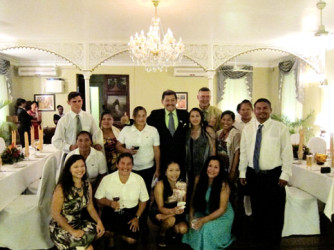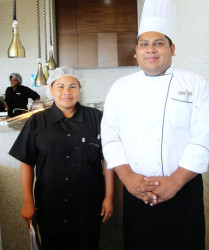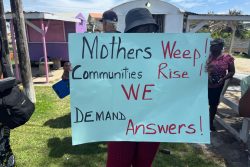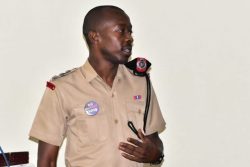In 2012, three Eco Lodges, Surama, Rewa, and Karanambu formed a business initiative: ‘The North Rupununi Cluster’. The Cluster developed a business plan which would upgrade these three lodges to a consistent standard of excellence in sustainable tourism, and allow for the people of the villages in the North Rupununi to rely on conservation of their natural resources, rather than extraction. The Cluster applied for funding and the project was approved by the Compete Caribbean programme in 2013. Compete Caribbean is a private sector development programme, jointly funded by the Inter-American Development Bank (IDB), the United Kingdom Department for International Development (DFID) and the Government of Canada, that supports business initiatives in 15 Caribbean countries.
The North Rupununi area of southern Guyana is made up of a series of sparsely populated settlements and Amerindian communities over a massive area of land that encompasses rainforests and savannah. It is one of the most biologically diverse wetland areas in the world. A few of the settlements are old cattle ranches that have transitioned into eco lodges. The Amerindian communities are small villages of 200 to 1,000 people who rely mainly on subsistence farming. Here the overwhelming concern is employment. Many men migrate to earn an income in extractive industries like gold mining and timber harvesting. In some communities the migration rate has been as high as 80%, but a developing tourism sector and the income possibilities it brings allows many to remain in their communities and earn a viable living to support their families. There are also new opportunities for women in management roles and as expert guides, in addition to the traditional positions as housekeepers and cooks. Eco tourism in the Rupununi has also opened up a new alternative for many young people who are just coming out of school. It is with all of this in mind that the North Rupununi Cluster was developed.

There are many facets to this Cluster project, one of which is the further development of hospitality training. The Cluster lodges feel strongly that exposure by staff to other lodges and to the industry in Georgetown is not only beneficial, but a necessary next step in their product development. The Cluster decided to develop a clearly defined training programme that would exchange and expose staff to hotels and restaurants in Georgetown.
All three lodges in the Cluster are members of the Tourism and Hospitality Association of Guyana (THAG), therefore the Cluster approached THAG for help with the training and exposure programme and requested the support of the other members of the association in Georgetown. There was tremendous support from the Pegasus, Marriott, Herdmanston, Cara Lodge and Grand Coastal hotels.
On August 14, there was great excitement as 12 staff members of the Cluster – 4 from each lodge – boarded Trans Guyana Airways for Georgetown. For most of the participants it was their first time on an airplane. They were greeted at Ogle and taken to their hotels, where they checked in as guests. Again, there were many first time experiences from the ride in the elevator to the swim in the pool and the extraordinary fine dining experiences.
On day two, work began! Each trainee shadowed an individual member of staff in each hotel. The shadowing of staff was on a rotational basis so that the members of the Cluster could understand the totality of hotel operations. This was an introduction for the trainees to industry-wide standards of hospitality in Guyana. These standards include guest care, room preparation, bar service, food preparation and menus. The idea was to get the trainees to see themselves through the eyes of a guest. The Cluster believes that staff must understand and anticipate the needs of a guest as well as how to make a guest more comfortable. The idea behind the shadowing arrangements with hotels is to allow staff to see the Georgetown standard of care for guests.

The programme was led by Paloma Zapata, a Compete Caribbean consultant, who ran the initial course for the group and worked very closely with THAG to conduct the training. Ms Zapata supported the Cluster trainees with workshops and discussions throughout the week. Each trainee received a Food Handler’s Certificate. They also experienced the Giftland Mall and completed a full tour of Georgetown. On the final night, the Cluster trainees were treated to a formal dinner at Cara Lodge in the Ballet Room and a very special visit from Minister of Indigenous Affairs Sydney Allicock. Minister Allicock presented each transformed trainee with a framed certificate of completion.
The results of this training exceeded the expectations of the Cluster and the members of THAG who participated. The trainees returned home full of enthusiasm and tremendous appreciation for their Georgetown counterparts. Surprisingly, the hotels in Georgetown want to do the opposite exchange and visit their new friends in the Eco Lodges of the Rupununi. It has already been unanimously agreed that this programme needs to be repeated in the future.









